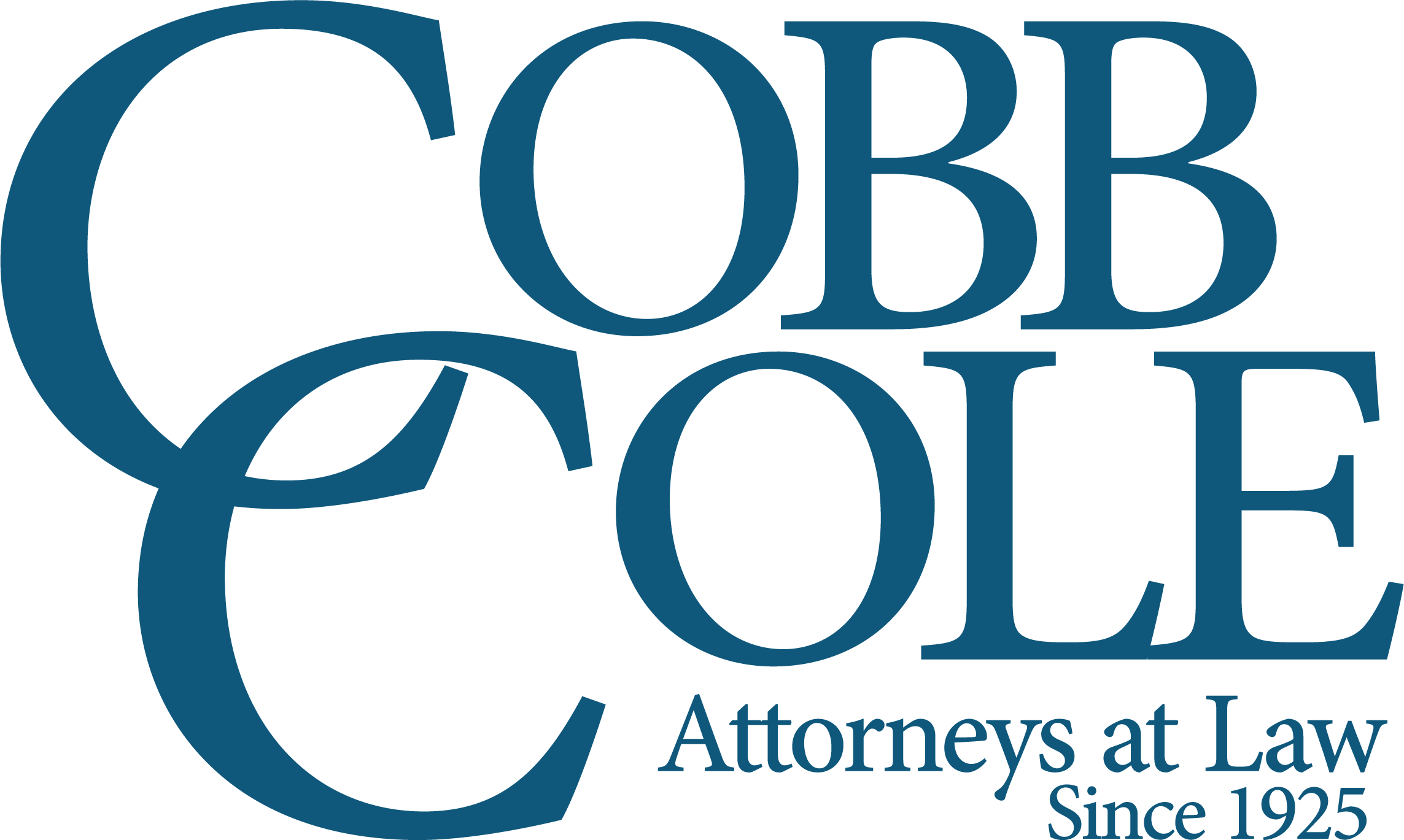This is one of the questions we get most often from small business owners and prospective entrepreneurs. The best choice depends on several factors, including liability protection, taxation, ownership structure, and the long-term goals of the business. For many small business owners, an LLC will provide the best balance between liability protection, tax treatment, and flexibility. However, because each business is unique, consider contacting Cobb Cole’s Corporate and Business Law for help in determining your business’s structure and meeting the necessary legal formalities.
Why Business Structure Matters
The legal structure of a business determines how it operates, who controls it, how it is taxed, and how liability is allocated. Business structures serve several key purposes:
- Limiting Liability – Certain structures, such as corporations and LLCs, provide liability protection to their owners, shielding personal assets from business debts and lawsuits. For example, a business operating as a sole proprietorship exposes the owner’s personal assets to claims, putting his or her personal assets at risk in the event of an adverse event. By contrast, an LLC would limit liability to business assets and protect the personal assets of the business owner.
- Ownership and Capital Relationships – The business structure defines ownership percentages, voting rights, and capital contributions. Partnerships may allocate control based on ownership stakes, while corporations can issue different classes of stock, which are valued differently and comprise different voting rights.
- Raising Capital – Corporations and LLCs have the advantage of issuing equity interests to raise capital. Startups seeking venture capital investment typically opt for this structure.
- Operational Flexibility and Compliance – LLCs offer operational flexibility with fewer formal requirements than corporations, making them popular for small businesses.
- Tax Considerations – Different structures impact how business income is taxed. Sole proprietors and partnerships report profits on personal tax returns, while corporations may face double taxation. In Florida, LLCs and S corporations allow pass-through taxation (where owners pay income tax on business profits, but the business does not pay corporate income tax) while retaining some of the limited liability benefits of a corporate structure.
Each structure has unique benefits and trade-offs. The right choice depends on a business’s operational needs, growth plans, and risk tolerance. The Corporate and Business Law group at Cobb Cole can help structure your business to protect your assets, optimize tax considerations, and prepare for a wide range of growth contingencies.
Business Structure Options in Florida
Florida recognizes several business structures, each suited for different types of ventures. Below are the most common:
Sole Proprietorship
A sole proprietorship is owned and operated by a single individual. It requires no formal registration beyond local business licensing. However, the owner is personally liable for all debts and obligations, making it risky for ventures with significant liabilities.
General Partnership (GP)
A general partnership involves two or more individuals conducting business together. While easy to establish, all partners share liability for debts and legal claims. Although not legally required, GPs should have a partnership agreement in place to define ownership percentages, management duties, and profit distribution.
Limited Partnership (LP) and Limited Liability Partnership (LLP)
Limited partnerships have both general partners (who manage the business and assume liability) and limited partners (who invest capital but have limited liability). LLPs offer liability protection to all partners, making them a preferred structure for professional firms, such as law and accounting practices.
Limited Liability Company (LLC)
An LLC is a hybrid structure combining the liability protection of a corporation with the tax flexibility of a partnership. LLCs are particularly well-suited for small businesses due to:
- Limited personal liability for owners.
- Pass-through taxation, avoiding corporate income tax.
- Fewer formalities and reporting requirements than corporations.
- Flexibility in structuring ownership and management.
For small business owners in Florida, LLCs provide a balance between legal protection and ease of operation. Many businesses, from construction firms and contractors to restaurants and retail stores, operate as LLCs to minimize liability while maintaining tax efficiency.
Corporations (C Corp and S Corp)
Corporations are another type of legal entity, offering strong liability protection. C corporations (including most large and publicly traded firms) are subject to corporate taxation (commonly known as “double taxation”), while S corporations (often family-owned firms) allow pass-through taxation. Corporations require more formalities, such as maintaining a board of directors, holding annual meetings, and issuing stock. Larger businesses and those seeking external investors often choose a corporate structure.
Using Multiple Entities in Business Operations
Many businesses benefit from structuring operations through multiple entities to optimize liability protection and tax efficiency. For example:
- A real estate investment firm might create separate LLCs for each property to limit liability.
- A business could establish a real estate holding company that owns its physical premises and leases them to the operating company.
- A parent company might own multiple subsidiaries to manage different lines of business while isolating risk.
Carefully structuring business entities can reduce legal exposure and improve financial planning.
Choosing the Right Business Structure for Your Needs
Selecting the best business structure for your company depends on the type of business, risk exposure, growth plans, and tax preferences. Below are common business types and the structures often best suited for them:
- Freelancers and Consultants – Sole proprietorship or LLC. An LLC is recommended if liability protection is a concern.
- Small Retail Businesses – LLC or S corporation. An LLC is easier to manage, while an S corp may offer tax benefits. Specifically, an S corp owner can divide profits between salary (subject to normal payroll income tax) and dividend distributions (subject to a lower tax rate).
- Professional Services (Law, Accounting, Medical Practices) – LLP or professional corporation (PC) to limit liability among partners.
- Technology Startups – C corporation. This structure facilitates venture capital investment and stock issuance.
- Real Estate Investors – LLCs or multiple LLCs to separate assets and mitigate risk.
- Manufacturing and Large Enterprises – C corporation or S corporation for liability protection and scalability.
Of course, every business is unique, so seeking professional guidance to set up and structure your business’s legal entities is the best solution.
How Cobb Cole Can Help
As a full-service Florida law Firm, Cobb Cole can assist with:
- Structuring business entities and ownership distribution.
- Land use planning and zoning compliance.
- Obtaining permits and meeting governmental requirements.
- Establishing contracts with vendors, suppliers, and employees.
- Setting up leasing arrangements and securing real estate.
- Managing business governance and regulatory compliance.
Cobb Cole’s seasoned attorneys across a wide range of practice areas help business owners navigate Florida law to limit their liability, streamline operations, and prepare for growth.
To ensure your business is structured effectively, consult the Corporate and Business Law team at Cobb Cole for tailored legal solutions.

